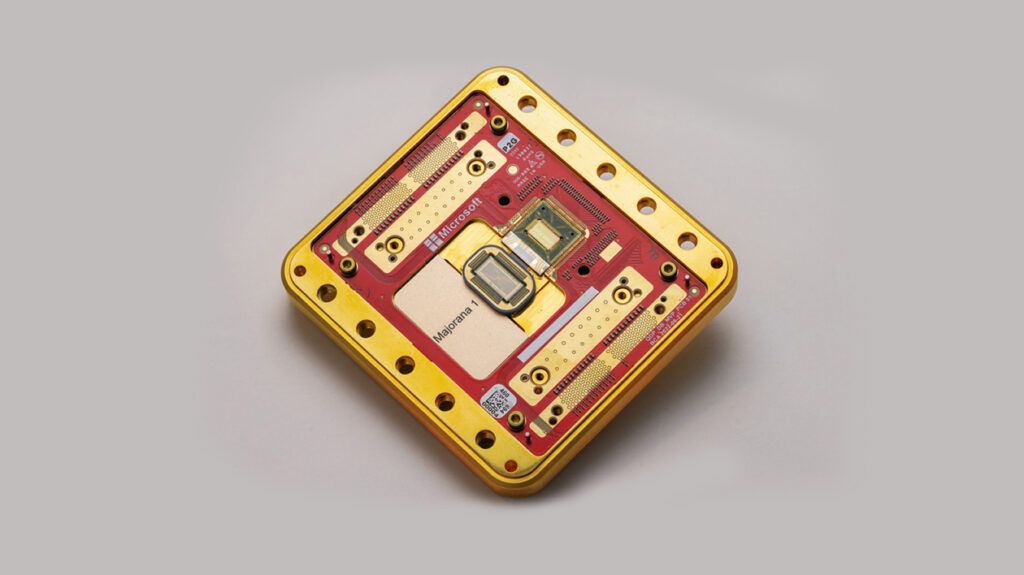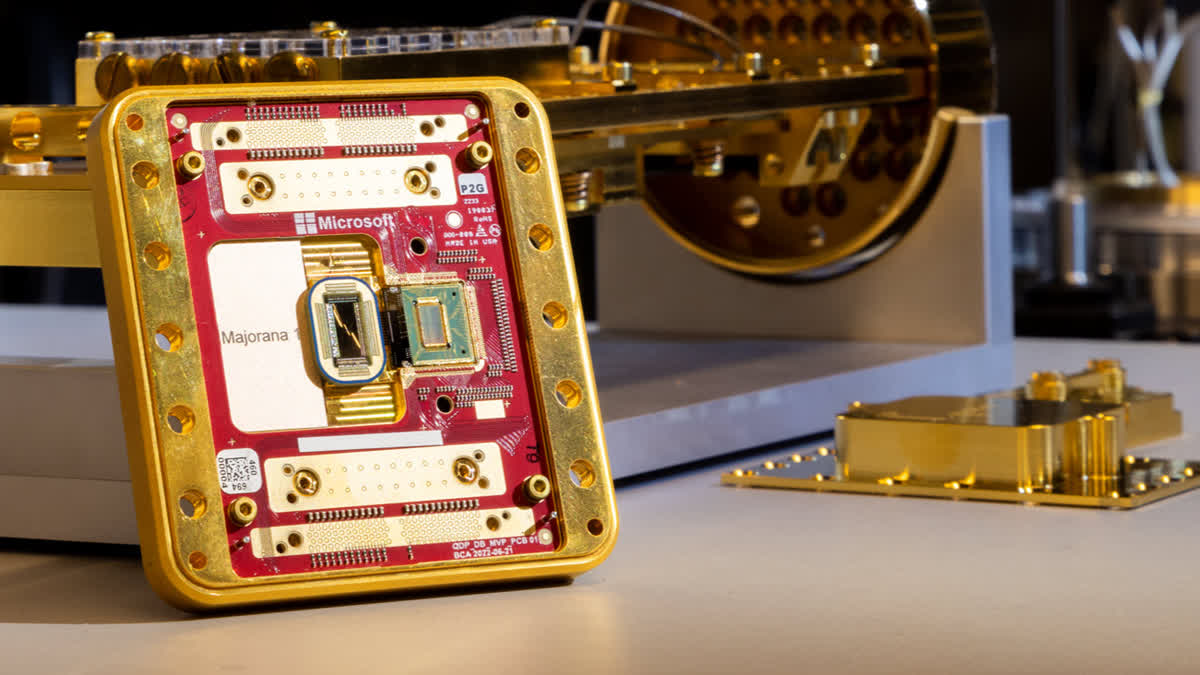Hyderabad: Microsoft has announced the Majorana 1, the world's first quantum chip powered by a new Topological Core architecture. The company expects Majorana 1 to power quantum computers capable of solving industrial-scale problems in years that would have otherwise taken decades.
The quantum chip uses the world’s first topoconductor, a breakthrough type of material that can observe and control Majorana particles to produce more reliable and scalable qubits-- building blocks for quantum computers, Microsoft explained in a press note, comparing it to semiconductors and how they power today's smartphones, computers, and electronics.
Topoconductors and the new type of chip they enable offer a path to developing quantum systems that can scale to a million qubits and are capable of tackling the most complex industrial and societal problems, Microsoft said.
Microsoft technical fellow Chetan Nayak called it the transistor for the quantum age that has enabled a new kind of qubit and a new architecture. The new architecture used to develop the Majorana 1 processor offers a clear path to fit a million qubits on a single chip that can fit in the palm of one’s hand, Microsoft said, adding a single one-million-qubit quantum computer will possess capabilities beyond the combined power of all the world's existing computers.
“Whatever you’re doing in the quantum space needs to have a path to a million qubits. If it doesn’t, you’re going to hit a wall before you get to the scale at which you can solve the really important problems that motivate us,” Nayak said. “We have actually worked out a path to a million.”
What is a topoconductor or topological superconductor?
A topoconductor, or topological superconductor, is a special material that can form a new state of matter, different from solid, liquid, or gas. This material helps create a more stable and easily controlled qubit for quantum computing. A new paper published in Nature on Wednesday, February 19, 2025, shows how Microsoft researchers made and measured the topological qubit's quantum properties.
"This breakthrough required developing an entirely new materials stack made of indium arsenide and aluminium, much of which Microsoft designed and fabricated atom by atom, the company said. "The goal was to coax new quantum particles called Majoranas into existence and take advantage of their unique properties to reach the next horizon of quantum computing."
Microsoft claims that the "world’s first Topological Core powering the Majorana 1" is reliable by design and incorporates error resistance at the hardware level, making it more stable.
Quantum computing
The next breakthrough in quantum computing will involve machines with a million qubits, capable of trillions of operations, Microsoft said, adding that such computers could solve problems in chemistry, materials science, and other fields, leading to innovations like self-healing materials and efficient catalysts.

Quantum computing could revolutionise many industries by allowing accurate and rapid design of new materials and molecules. As Troyer from Microsoft said, "It would just give you the answer," enabling precise and efficient creation.
The quantum world works differently from the physical world we see. Qubits, the basic units of quantum computers, are delicate and easily disrupted. Microsoft has spent nearly 20 years developing more stable qubits called topological qubits, which require less error correction and offer better performance. These qubits use exotic particles called Majoranas, which had never been seen until now.
The study claims that Microsoft has created Majorana particles and can measure them precisely. This breakthrough makes quantum computing more practical by simplifying the control and measurement of qubits. Microsoft's quantum chip, Majorana 1, is small and can fit inside Azure data centres, making it easier to scale quantum computing.
Development of quantum materials
Microsoft's topological qubit architecture uses aluminium nanowires arranged in an H shape, with each H containing four controllable Majoranas to form one qubit. These H-shaped structures can be connected and laid out across the chip-like tiles.
“It’s complex in that we had to show a new state of matter to get there, but after that, it’s fairly simple. It tiles out. You have this much simpler architecture that promises a much faster path to scale,” Microsoft technical fellow Krysta Svore said.
The quantum chip operates within an ecosystem that includes control logic, a dilution refrigerator to keep qubits extremely cold, and a software stack that integrates with AI and classical computers, all developed in-house, she added.
Although refining these processes will take years, many scientific and engineering challenges have been addressed, Microsoft said, adding that it uses indium arsenide for the topoconductor, combining it with superconductivity at extremely cold temperatures to create a hybrid material.
“We are literally spraying atom by atom," Svore said, adding that the precise process requires aligning materials perfectly, as too many defects in the material stack can kill the qubit.
"Ironically, it’s also why we need a quantum computer – because understanding these materials is incredibly hard. With a scaled quantum computer, we will be able to predict materials with even better properties for building the next generation of quantum computers beyond scale,” she said.



